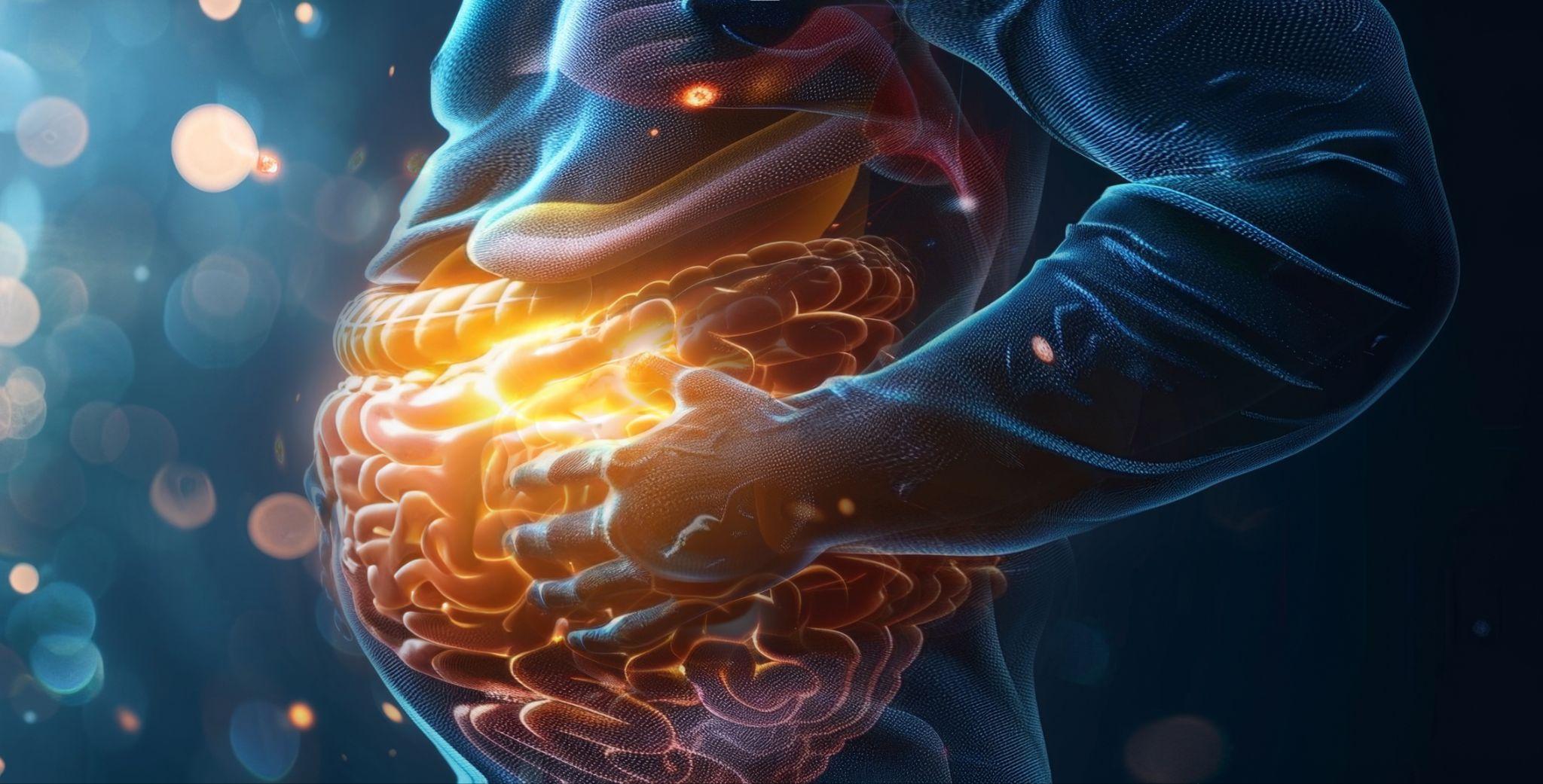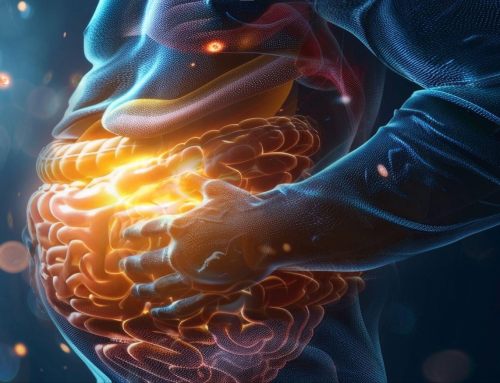How Do Physiological Changes Induced In Menopause Impact Mental Health?
It is estimated that 1.3 million women transition into menopause each year (1). Menopause is defined as 12 months of amenorrhea, indicating the end of reproductive capacity, along with marked hormonal changes (2). Hormones play an integral role in modulating systemic and psychobiological aspects of health. The hormonal alterations that occur in perimenopause and menopause induce physiological changes in the body that affect brain chemistry and function and other factors that can compromise mental health. In fact, this is a growing area of concern as a higher prevalence of clinical anxiety and depression disorders have been indicated in menopause.
More Than Just Hot Flashes
Hormones exist in delicate balance, vital to the synchronicity of the body’s functions, and integral to the metabolism of nearly all cells. Menopause is associated with marked alterations in estrogen and other hormones significant for modulating health and well-being. Imbalances in hormones wreak havoc on energy, metabolism, body temperature, libido, quality of sleep, and cardiovascular, immune, mental, and emotional health.
Estrogen is a protective factor for women relative to mood and metabolic and cardiovascular health – due to its integral roles as a vasodilator and neuromodulator. Declining levels of estrogen affect the production of nitric oxide (NO), an important modulating signaling molecule in the body that also regulates countless aspects of health.
Estrogen and NO have vital roles in governing healthy levels of inflammation and antioxidant enzymes. Reduced levels of estrogen or NO are associated with an increase in oxidative stress (ROS), inflammation, and aging, as well as disruptions in metabolic, mood, and cardiovascular health. Optimal estrogen and NO levels also have roles in improving blood flow, mood, vitality, nervous system, and sexual health, as well as neural plasticity.
Mental Health, Metabolic Health & Menopause
Menopause heightens the risk for metabolic health conditions through hormonal and systemic alterations. An increase in inflammatory markers is evidenced as a result of these marked changes in these health conditions, notably in depression. Elevated C-reactive protein (CRP), a biomarker of inflammation, has been associated with depression, oxidative stress, menopause, and compromised metabolic health (3).
Estrogen is essential for modulating levels of dopamine, serotonin, GABA, oxytocin, norepinephrine, and acetylcholine, all essential for mental health (4). Progesterone, which supports mood while alleviating stress, is also reduced and a significant factor in menopause. Testosterone levels are also reduced, thereby affecting dopamine, mood, and sex drive. Altered ratios of DHEA to cortisol are also evident, leading to an increase in inflammation. Additionally, levels of vasopressin are also affected as NO production is compromised, affecting metabolic and cardiovascular health and blood flow.
Neurochemistry & Menopause – A Closer Look
The changes associated with menopause and compromised mental health have been well noted in the literature. Hormonal alterations induce changes to systemic health, as well as to the brain, having an impact on thoughts and emotions. Reductions in estrogen, in particular, influence mental health—inducing neurochemical alterations— making one more susceptible to anxiety and depression.
In fact, the prevalence of depression and anxiety in women during menopause is significant. Depression and anxiety disorders are highly prevalent and often co-morbid mental health conditions, with reported lifetime prevalence rates up to 33.7% for anxiety disorders and 20.6% for depression (6, 7). Menopause can further compound these conditions in women. While their etiology is indeed multifaceted, physiological and hormonal differences play a vital role. Women are suggested to be at twice the risk of experiencing anxiety and depression than men. The decline, fluctuations, and imbalances in hormones during menopause distress the body, compromising the roles of neurotransmitters.
Sensitivity to estrogen is decreased in the brain circuitry, influencing neurochemistry and function in unfavorable ways. Imbalances are pronounced in estrogen, progesterone, luteinizing hormone (LH), follicle-stimulating hormone (FHS), and testosterone, resulting in dysfunction in the communication between hormones and neurotransmitters, affecting mental health. Sex-hormone-driven molecular mechanisms regulate gene expression and brain plasticity; therefore, changes induced in menopause may make one more susceptible to mental health conditions (5).
Protective Anxiolytic & Antidepressant Effects
Estrogen and progesterone are suggested to have protective anxiolytic and antidepressant effects. These hormones have been found to have neuromodulatory properties and are implicated in emotional and mental health (5). Estrogen levels affect serotonin and gamma-aminobutyric acid (GABA). A metabolite of progesterone, allopregnanolone, has been shown to play a vital role in menopause and mood, as it has been suggested to regulate GABA receptors, resulting in anti-anxiety and antidepressant effects (8). Progesterone has also been found to influence serotonin levels via modification of the expression of serotonin-related genes and proteins (9). Neuroprotective properties are also provided by progesterone, supporting the body and brain’s resilience to stress.
Hormonal Changes Influence Psychobiology
Sex hormones greatly interact with neurotransmitters that modulate mood and mental health, such as GABA, serotonin, dopamine, and glutamate (10). The serotonergic system serves a host of functions, most prominently balancing mood (11). Hormonal alterations can also impact dopamine neurotransmission through a number of mechanisms, including production, release, turnover, and degradation of 5-HT — all affecting mental health (12).
Several serotonin-modulating physiological functions are associated with hormones such as libido, mood, and the stress response (13). Estrogen has been evidenced to have serotonin-modulating properties from the level of neurotransmitter synthesis via regulation of tryptophan hydroxylase (14).
Neurochemical & Structural Alterations
Various brain changes that have been implicated in menopause have an impact on brain chemistry, function, and mood. The limbic and medial temporal lobe brain regions are shown to be altered. This is thought to be influenced by the expression of estrogen receptors in this area, as estrogen is considered a key neuromodulator. Estrogen affects the modulation of emotional health and neurotransmitter synthesis via the modulation of serotonin and other important feel good neurotransmitters. The impact of estrogen on serotonin availability depends largely on the amount of estrogen available (10).
Estrogen may also modulate mood by regulating stress as it influences the release of stress neurotransmitters, such as epinephrine and norepinephrine. It is also suggested that hormonal alterations in menopause can impact the breakdown of these neurotransmitters (15).
Estrogen-Gut Microbiome Axis
Gut microbiome imbalances such as dysbiosis (the imbalance of beneficial and pathogenic bacteria in the body) can further produce an imbalance in female hormones via the gut-brain-estrogen axis (16). Conversely, hormonal balance supports optimal gut microbiome composition and function, as well as mood.
Stress Further Wreaks Havoc
Stress can increase hormonal and overall systemic imbalance. Chronic stress can compromise communication between systems in the body and cause alterations in the gut microbiome, immune system, and the HPA axis, placing a heavy burden on the adrenal glands. This results in an increase in the production of cortisol and reductions in DHEA, all of which can further contribute to imbalance (17). Stress is also related to inflammation and mental health conditions, such as anxiety and depression.
The Epigenome, Lifestyle Factors and Improving the Future
While we can’t reverse time or change our genetic makeup, we can exert influence on how our genes become expressed and how to optimize hormonal balance by making informed, conscious decisions in support of our health. Our epigenome consists of the multitude of our genetic make-up, our experiences, as well as our responses to the environment – marked by chemical alterations to our genome, or DNA. We have the power to turn genes on and off with our daily choices. Here are some key lifestyle factors that enhance or harm health in these areas.
Sleep & Sex – Sleep is integral for balancing hormones. Sleep also aids in modulating gut functioning, which is imperative for hormone regulation and the production of neurotransmitters vital for mental health. Sleep is also essential to activate the glymphatic system, responsible for replenishing as well as cleansing the brain, ridding the brain of harmful toxins such as amyloid (18). What’s more, improving sleep hygiene can improve libido. Sex has a number of beneficial effects on our health, including increasing oxytocin and NO, reducing stress and inflammation, and improving hormonal regulation (19).
The Role of Nutrigenomics – Nutrigenomics highlights the impact nutrition has in turning genes on and off in ways that support our health. Using functional foods in order to support hormonal balance in menopause can also support mental health. Nutrient density, such as consuming diverse cruciferous vegetables and fruits, activates pathways that modulate genetic expression in favorable ways.
A balanced, nutrient-dense diet coupled with beneficial lifestyle practices are the building blocks for regulating and optimizing hormonal balance while supporting mental health in menopause. Fresh, colorful, in-season vegetables and fruits, healthy fats, complex carbohydrates, and high-quality proteins are all recommended for hormonal support. Adding herbal teas with adaptogens (such as Ashwagandha) may also further promote hormonal balance while reducing cortisol. Omega-3s (including olive oil, wild-caught salmon, and avocado) have anti-inflammatory properties and also serve as precursors for many hormones, further supporting hormonal balance (20). Sufficient amounts of high-quality protein support the modulation of hormones.
Cultured Foods & Leafy Greens – There is growing evidence that probiotics can modulate gut dysbiosis, supporting hormonal and gut microbiome balance, as well as mental health. Specific strains have been shown to restore the vaginal flora, which can improve hormonal health (21). Probiotic and prebiotic-rich foods can also support the gut-brain and gut-estrogen axis. Certain strains of bacteria that support mental health, collectively termed psychobiotics, have been found to synthesize GABA and serotonin (22).
Stress Reduction – Stress relaxation techniques can relieve symptoms of menopause (such as mood swings) while decreasing tension, anxiety, and depression. Hormones are greatly altered by stress, and so it is recommended to incorporate stress-reducing practices. Yoga and meditation are practices that offer noteworthy improvements in cortisol, mood, inflammation, and digestion. Mindful nasal breathing can help reduce or stop the stress response, as well as enhance NO production. Furthermore, being outside, grounded in nature, can also have soothing effects on cortisol, reduce inflammation, and improve immunity.
Stimulate Internal Balance – The use of acupuncture for reducing symptoms of menopause (including hormonal balance and improving mood) has been supported in the literature. Acupuncture is thought to stimulate the central nervous system, inducing favorable biochemical properties in support of physiological homeostasis. Increases in estrogen (notably estradiol), progesterone, and prolactin have been noted (23). Acupuncture has also been found to decrease LH levels which are increased in menopause (24). A meta-analysis of twelve randomized controlled trials showed that acupuncture significantly decreased hot flashes and improved quality of life in women in menopause (25).
Movement & Flow – Exercise supports improved oxygenation, blood flow, and nitric oxide production in the body and brain. Exercise also promotes the release of endorphins, modulates gut functioning, and promotes neural plasticity, further supporting mental health. Exercise has also been suggested to increase brain volume while decreasing age-related brain atrophy, particularly in conjunction with a healthy diet (26).
Yoga, in particular, may be beneficial for mental health in menopause. A systematic review of thirteen randomized controlled trials of 1306 participants found yoga to be effective in reducing somatic and psychological symptoms associated with menopause (27). Yoga has also been implicated in improving biomarkers of stress.
Hormonal Disruptors – Environmental Toxins
Environmental toxins play a strong role in hormonal disruption owing to oxidative stress and inflammation that can ensue. Chronic inflammation can further compromise the balance of hormones. High stress, processed foods, alcohol, a sedentary lifestyle, and environmental toxins have all been associated with chronic inflammation (28).
Physiological Homeostasis & Mental Health
Hormonal alterations observed in menopause can wreak havoc on systemic, metabolic, and neurobiological health, causing further shifts in these systems. Implementing practices that optimize hormonal and physiological homeostasis in the body are integral in supporting mental health.
Join us for this 2-part event, Mental Health in Menopause, on January 16th and 23rd from 5-7:30 pm in which speakers, Jeffrey Bland, Sara Grottfied, Jaclyn Smeaton, and Nayal Patel dive into this topic, with fascinating insights on how to optimize hormones in supporting this integral aspect of health and well-being. Please note that you must register seperately for each date. Click the links to learn more and register for Part 1 and Part 2.
References:
- Peacock K, Ketvertis KM, Doerr C. Menopause (Nursing) [Updated 2022 Aug 11]. In: StatPearls [Internet]. Treasure Island (FL): StatPearls Publishing; 2023 Jan-. Available from: https://www.ncbi.nlm.nih.gov/books/NBK568694/
- Minkin, M J. Menopause: Hormones, Lifestyle, and Optimizing Aging, Obstetrics and Gynecology Clinics of North America. 2019 46, 3, 501-514, https://doi.org/10.1016/j.ogc.2019.04.008.
- Jeong HG, Park H. Metabolic Disorders in Menopause. 2022 Oct 8;12(10):954. doi: 10.3390/metabo12100954. PMID: 36295856; PMCID: PMC9606939.
- Brann DW, Lu Y, Wang J, Sareddy GR, Pratap UP, Zhang Q, Tekmal RR, Vadlamudi RK. Neuron-Derived Estrogen-A Key Neuromodulator in Synaptic Function and Memory. Int J Mol Sci. 2021 Dec 8;22(24):13242. doi: 10.3390/ijms222413242. PMID: 34948039; PMCID: PMC8706511.
- Kundakovic M, Rocks D. Sex hormone fluctuation and increased female risk for depression and anxiety disorders: From clinical evidence to molecular mechanisms. Front Neuroendocrinol. 2022 Jul;66:101010. doi: 10.1016/j.yfrne.2022.101010. Epub 2022 Jun 15. PMID: 35716803; PMCID: PMC9715398.
- Bandelow B, Michaelis S, 2015. Epidemiology of anxiety disorders in the 21st century. Dialogues Clin Neurosci. 17, 327–35. [PMC free article] [PubMed] [Google Scholar]
- Hasin DS, et al., 2018. Epidemiology of Adult DSM-5 Major Depressive Disorder and Its Specifiers in the United States. JAMA Psychiatry. 75, 336–346. [PMC free article] [PubMed] [Google Scholar]
- Walton N, Maguire J. Allopregnanolone-based treatments for postpartum depression: Why/how do they work? Neurobiol Stress. 2019 Oct 24;11:100198. doi: 10.1016/j.ynstr.2019.100198. PMID: 31709278; PMCID: PMC6838978.
- Guennoun R. Progesterone in the Brain: Hormone, Neurosteroid and Neuroprotectant. Int J Mol Sci. 2020 Jul 24;21(15):5271. doi: 10.3390/ijms21155271. PMID: 32722286; PMCID: PMC7432434.
- Barth C, Villringer A, Sacher J. Sex hormones affect neurotransmitters and shape the adult female brain during hormonal transition periods. Front Neurosci. 2015 Feb 20;9:37. doi: 10.3389/fnins.2015.00037. PMID: 25750611; PMCID: PMC4335177.
- Martinowich K., Lu B. (2008). Interaction between BDNF and serotonin: role in mood disorders. Neuropsychopharmacology 33, 73–83. 10.1038/sj.npp.1301571 [PubMed] [CrossRef] [Google Scholar]
- Bethea C. L., Lu N. Z., Gundlah C., Streicher J. M. (2002). Diverse actions of ovarian steroids in the serotonin neural system. Neuroendocrinol. 23, 41–100. 10.1006/frne.2001.0225
- Biegon A. (1990). Effects of steroid hormones on the serotonergic system. N.Y. Acad. Scie. 600, 427–432. discussion: 432–434. 10.1111/j.1749-6632.1990.tb16899.x
- Lu N. Z., Shlaes T. A., Gundlah C., Dziennis S. E., Lyle R. E., Bethea C. L. (1999). Ovarian steroid action on tryptophan hydroxylase protein and serotonin compared to localization of ovarian steroid receptors in midbrain of guinea pigs. Endocrine 11, 257–267. 10.1385/ENDO:11:3:257 [PubMed] [CrossRef] [Google Scholar]
- ter Horst GJ. Estrogen in the limbic system. Vitam Horm. 2010;82:319-38. doi: 10.1016/S0083-6729(10)82017-5. PMID: 20472146.
- Maeng, L. M & Beumer, A. Never fear, the gut bacteria are here: Estrogen and gut microbiome-brain axis interactions in fear extinction. International Journal of Psychophysiology, 89,2023, 66-75.
- Joëls M, Karst H, Krugers HJ, Lucassen PJ. Chronic stress: implications for neuronal morphology, function and neurogenesis. Front Neuroendocrinol. 2007 Aug-Sep;28(2-3):72-96. doi: 10.1016/j.yfrne.2007.04.001. Epub 2007 May 1. PMID: 17544065.
- Reddy OC, van der Werf YD. The Sleeping Brain: Harnessing the Power of the Glymphatic System through Lifestyle Choices. Brain Sci. 2020 Nov 17;10(11):868. doi: 10.3390/brainsci10110868. PMID: 33212927; PMCID: PMC7698404.
- Kling JM, Manson JE, Naughton MJ, Temkit M, Sullivan SD, Gower EW, Hale L, Weitlauf JC, Nowakowski S, Crandall CJ. Association of sleep disturbance and sexual function in postmenopausal women. Menopause. 2017 Jun;24(6):604-612. doi: 10.1097/GME.0000000000000824. PMID: 28141665; PMCID: PMC5443696.
- Mumford SL, Chavarro JE, Zhang C, Perkins NJ, Sjaarda LA, Pollack AZ, Schliep KC, Michels KA, Zarek SM, Plowden TC, Radin RG, Messer LC, Frankel RA, Wactawski-Wende J. Dietary fat intake and reproductive hormone concentrations and ovulation in regularly menstruating women. Am J Clin Nutr. 2016 Mar;103(3):868-77. doi: 10.3945/ajcn.115.119321. Epub 2016 Feb 3. PMID: 26843151; PMCID: PMC4763493.
- López-Moreno A, Aguilera M. Probiotics Dietary Supplementation for Modulating Endocrine and Fertility Microbiota Dysbiosis. Nutrients. 2020 Mar 13;12(3):757. doi: 10.3390/nu12030757. PMID: 32182980; PMCID: PMC7146451.
- Dinan TG, Stanton C, Cryan JF. Psychobiotics: a novel class of psychotropic. Biol Psychiatry. 2013 Nov 15;74(10):720-6. doi: 10.1016/j.biopsych.2013.05.001. Epub 2013 Jun 10. PMID: 23759244.
- Ko JH, Kim SN. A Literature Review of Women’s Sex Hormone Changes by Acupuncture Treatment: Analysis of Human and Animal Studies. Evid Based Complement Alternat Med. 2018 Nov 15;2018:3752723. doi: 10.1155/2018/3752723. PMID: 30581481; PMCID: PMC6276442.
- Mason AS. The menopause: the events of the menopause. R Soc Health J. 1976 Apr;96(2):70-1. doi: 10.1177/146642407609600208. PMID: 951489.
- Chiu HY, Pan CH, Shyu YK, Han BC, Tsai PS. Effects of acupuncture on menopause-related symptoms and quality of life in women in natural menopause: a meta-analysis of randomized controlled trials. 2015 Feb;22(2):234-44. doi: 10.1097/GME.0000000000000260. PMID: 25003620
- van Praag H. Exercise and the brain: something to chew on. Trends Neurosci. 2009 May;32(5):283-90. doi: 10.1016/j.tins.2008.12.007. Epub 2009 Apr 6. PMID: 19349082; PMCID: PMC2680508.
- Cramer, H Peng, W., & Lauche, R. Yoga for menopausal symptoms—A systematic review and meta-analysis, Maturitas, Volume 109, 2018,Pages 13-25,ISSN 0378-5122, https://doi.org/10.1016/j.maturitas.2017.12.005.
- Straub RH. Interaction of the endocrine system with inflammation: a function of energy and volume regulation. Arthritis Res Ther. 2014 Feb 13;16(1):203. doi: 10.1186/ar4484. PMID: 24524669; PMCID: PMC3978663












